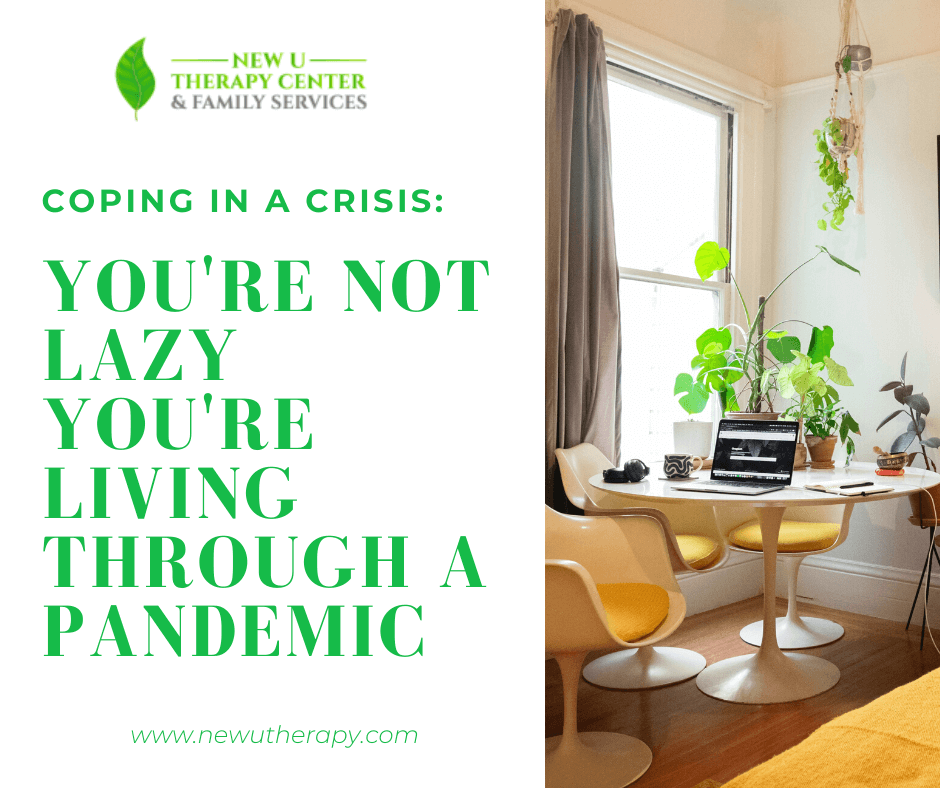[vc_row][vc_column][vc_column_text]
What is collective pain?
We live in an age where we can get minute-by-minute updates on local, national, and global news. This is good in many ways–we’re able to keep up with what is happening in our communities, how that is affecting our larger environment, as well as keep up with things that are happening across the world from us.
The downside is that without intentional self care and self discipline, we can get sucked into an endless cycle of reading about tragedy after tragedy (especially now, during a global pandemic) while at the same time feeling like there is so much bad in the world that we can’t possibly do anything meaningful to change it.
As we open our social media feeds and see news of more and more people getting sick, not having access to social or medical services that would help them, or dying, we experience what is known as collective pain.
While there is also individual pain brought about by this pandemic–loss of friends and loved ones, loss of jobs, loss of our normal routines, loss of our social lives, etc.–collective pain is part of what makes us feel so helpless in times of crisis.
Collective pain is a broad term, holding space for collective grief, collective trauma, and collective anxiety. All of which we experience on both an individual and a community level in times of crisis.
We can see collective pain through:
- Loss of beloved community businesses
- Loss of huge numbers of community members
- Group expressions of mourning (vigils, marches, virtual acts of solidarity, etc)
- Loss of a sense of community
- Loss of community prosperity
- Loss of community events, gatherings and rituals
- Anxiety over the unknown–how long this crisis will go on, how many more people will be lost, etc.
How trauma + anxiety affect the body
Living through a pandemic means each day living with both your individual and the collective pain in reaction to the tragedy around you. This is of course going to have an effect not only on your mental health, but on your physical health as well.
First, let’s look at ways anxiety can manifest in your body:
- Frequent headaches
- Frequent aches in other areas of the body (neck, back, stomach)
- Nausea
- Diarrhea
- Increased blood pressure
- Heart pounding/palpitations
- Extreme fatigue
Now, what about the physical expressions of trauma? They can include:
- Insomnia
- Increased startle reflex
- Body aches and pains
- Racing heart
- High blood pressure
- Frequent illness
With all of this happening on both a micro (just you) and a macro (the whole world) scale, of course you are going to feel depleted and exhausted. So far it has been about three and half months of living through this crisis, which means there are three and a half months of individual and collective anxiety and trauma building up inside of you.
Gentle reminders for yourself:
All of these things make us feel extremely fatigued.
So while you may be thinking that quarantine means extra time to hang out at home to finally learn something new or get a lot done, chances are you’ve not actually been able to achieve those goals of productivity. And that can make you feel lazy, guilty, or shameful.
But the reality is, a global crisis is not filled with leisure time. And even if you are safe, in your own home, the pain of the collective is still affecting you.
And while you may want to distract yourself from what is happening from time to time with a new hobby, it is okay if your time in crisis isn’t filled with deep, personal work. It’s okay if these last few months have not been banner months for your personal, emotional, or professional progress. It’s okay if they have just been focused on survival.
What you can do to cope in a crisis:
- Make a list of ways you’re going to care for yourself each day: This can be small things. Maybe today you will take 5 minutes for deep breathing or stretching. Maybe you will make sure to eat three full meals today, or call a friend to check in.
- Take time to check in with yourself: Are you tired? Irritable? Restless? Tune into these feelings, because they will tell you what you need. If you’re tired, rest or find an activity that rejuvenates you. If you’re restless go for a walk.
- Express gratitude and forgiveness toward yourself: How did you take care of yourself today? Thank yourself for it. How do you feel you have let yourself down? Forgive yourself for it. Times are hard and you can try again tomorrow.
Due to stressful situations and current events, exposure to Coronavirus, your immune system needs extra support and maintenance. Stress hormones can be elevated at this time that can affect your mood and behavior.
To support the local community and people that need immune support and boost, we are giving away 30 free B-12 shots that can:
May Improve Mood and Symptoms of Depression. …
May Benefit Your Brain by Preventing the Loss of Neurons. …
May Give You an Energy Boost.
We are taking registrations for the B-12 shots and they are limited. Upon completion of registration, we’ll choose candidates that are suffering from one or all three symptoms: stress, high anxiety, and severe depression.
To register or inquire about more details, please call us at (818)600-2034.
[/vc_column_text][vc_single_image image=”1636″ img_size=”full”][/vc_column][/vc_row][vc_row][vc_column][/vc_column][/vc_row]

